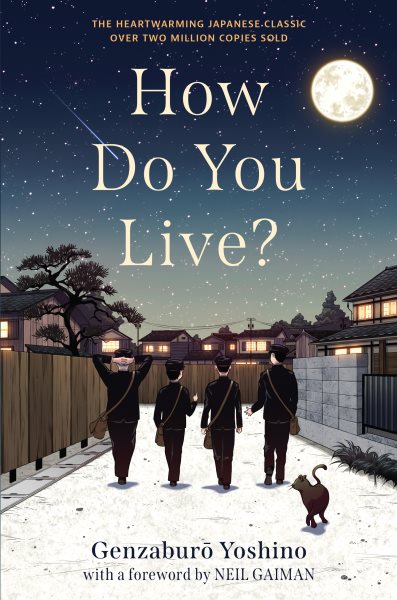This book comes highly recommended by Neil Gaiman, who reports in the forward that it was Japanese filmmaker Hayao Miyazaki’s favorite book as a teenager, and was a huge influence on his life and films. It took me a little while to get into it because I was expecting a children’s story, and it is not, really. It is instead a series of simple but profound philosophy lessons, written in 1937 and aimed at young teenage Japanese boys.

The story, such as it is, is about fifteen-year-old Jun’ichi, who is called Copper (short for Copernicus). His father is deceased, so his uncle writes long letters to him, more or less to give him advice and support. The book alternates between Copper’s fairly mundane school days and the uncle’s analysis of them. His uncle has a good deal of understanding and wisdom, but not exactly what you might expect. This is not an American story. It is already assumed that Copper knows how to study in school and respect his teachers and elders. It is obvious that fitting in, overcoming differences, and coping with his father’s death are considered fairly trivial. Romance doesn’t even come up.
Instead, Copper learns lessons from history, ethics, and philosophy. Standing on a rooftop in Tokyo, in a scene that seemed familiar from many anime, he realizes his own insignificance. He learns about greatness and the misuse of power from the life of Napoleon. He learns about poverty and wealth, cowardice and taking responsibility, and the interconnectedness of all human beings. But mostly, in the course of his lessons, he decides that, no matter what, he must work hard to grow up, so that he can become a “great example of human being.” This, too, should be a familiar theme to anyone who watches anime, from Miyazaki’s films to Naruto and My Hero Academia.
The post How Do You Live by Genzaburo Yoshino appeared first on DreamHaven.